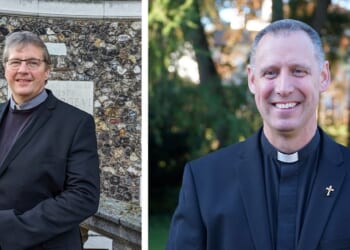(LifeSiteNews) — A trans-identifying pedophile in the United Kingdom has run into trouble with the law for the third time in four years after attempting to use his fictitious female identity to get around the legal restrictions placed on his behavior.
In 2022, Luke Hardy, a 24-year-old from Stockton, England, was convicted for making 36 “indecent images of children.” Eight of those images were in “Category A” – the most serious category of child abuse material and constituting the most horrific form of pornography. His sentence included Sexual Harm Prevention Orders (SHPOs) to prevent Hardy from perpetrating future offences.
Hardy, however, identifies as transgender, claiming to be a woman and going by the name of “Zoe Hardy,” and has used his female alter ego to pose as a woman online. The courts have obediently used female pronouns to refer to him during proceedings, despite the U.K. Supreme Court’s recent ruling that the term “woman,” under the Equality Act, refers to biological women rather than trans-identifying men.
READ: UK court rules male pool player can’t compete in women’s events
In 2023, Hardy was jailed for breaching the Sexual Harm Prevention Order after he was found to have deleted internet history on his phone and used the handle “Lucy” on a pornography site without notifying the police of this female alias. Hardy was officially labeled a “high-risk offender.”
On August 5, Hardy was sentenced to 8 months in prison once again – but attempted to use his transgender identity to excuse his behavior. In July, a police search of Hardy’s home revealed that he had used his transgender name “Zoe” on a mobile game, in an email account, and on a dating app. Once again, Hardy had not told the police that he was using a female name online, and he was taken into custody.
At the Teesside Crown Court, Judge Richard Clews sentenced Hardy for “breaching the SHPOs and an extra month when he activated part of previous suspended sentences.” Clews told Hardy: “It is appropriate to describe the breaches of the sexual harm prevention order as persistent and deliberate.” Clews said that the sentence was limited to 8 months because – at least for the time being – no person has been harmed by Hardy’s violation of the SHPOs.
According to the Telegraph, Hardy’s transgender identity was used in an attempt to curry sympathy with the court, noting that the “court heard that Hardy told police he was struggling with his sexuality, ‘sometimes feeling like Luke, sometimes like Lucy.’” It is relevant to note that Hardy didn’t tell them he felt like “Zoe,” his transgender name. Hardy is a dangerous pedophile using a transgender identity to ward off the consequences of his vile predilections. Thus, any female name will do.
Hardy, like many other sex offenders, realizes that his transgender identity can be used to claim that rather than merely being a threat to the vulnerable, he himself is also part of a vulnerable population. Additionally, by claiming to be female, he hopes for different treatment from law enforcement and the courts than he would get if he were treated like a male sex offender with an obsession with sexual violence against children.
READ: School outrages parents with ‘non-binary’ male teacher for young children
Hardy isn’t the only one. A repeat child sex offender in Georgia was allowed to play against teen girls in a tennis competition after successfully disguising the fact that he is male by identifying as transgender. Thirty-year-old Nicolas Rivera Suarez, who identifies as transgender and is an active member of the New York LGBT scene, has been accused of child rape – but is being held in a female prison on Rikers Island.
That’s not to mention the half-dozen prominent murderers who are currently attempting to get themselves sent to female prisons because they claim that they are now “transgender.”
Trans activists might claim that these sex offenders and criminals are aberrations. But nonetheless, they also insist that these men have the right to be referred to as women in court; have the right to be locked up with vulnerable female populations; and have the right to have their fictitious identities legally recognized.


















